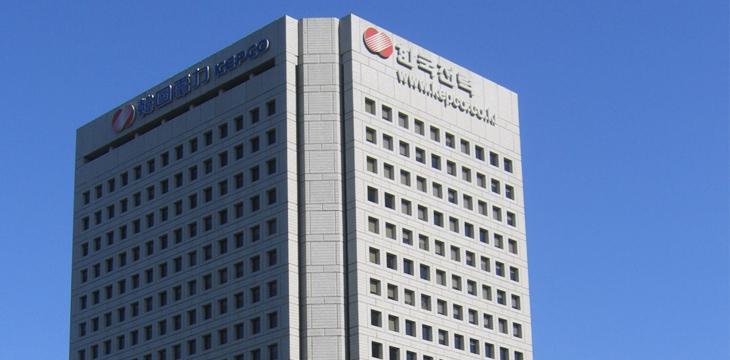|
Getting your Trinity Audio player ready...
|
South Korea’s leading energy provider KEPCO has turned to blockchain to help it deliver eco-friendly power through its next generation micro grid (MG), becoming the latest firm in the energy sector to utilize the technology.
The company is majority owned by the South Korean government and the state-controlled bank, with what has been described as a “virtual monopoly” over the generation and distribution of power within the South Korean market.
The decision will represent a significant deployment of blockchain, with the technology working alongside other innovations to shape the new Open MG infrastructure.
In a statement, the South Korean energy provider said the platform will focus on what it termed the “three key trends” for the future of energy management—decentralization, decarbonization and digitalization.
Decentralization ensures energy stability and security, while decarbonization comes from more efficient management of energy sourcing and production. Digitalization will enable next generation systems to interact effectively, to more effectively manage output.
Previous MGs have experienced difficulties in producing stable power supply, with wind turbines, photovoltaic and energy storage systems being implemented by KEPCO prior to the new system.
Building on those experiences, Open MG will incorporate an “additional fuel cell” to underwrite fluctuations in output, which was explained by the firm as a way of increasing energy independence without additional greenhouse gas emissions.
The company press release describes Open MG is interoperable and based on international standard technology, which will help prevent demand squeeze and reduce bottlenecks in the system.
KEPCO said it intends to develop Open MG into South Korea’s first megawatt-scale micro grid, which will see the system distributing power more efficiently to end users nationwide.
In the last few weeks, KEPCO announced it had partnered with the University of Tokyo, Mitsubishi UFJ Bank and Nihon Unisys to research using blockchain for managing electricity supply.
The plans follow a decision this month from the South Korean government to increase the budget for domestic blockchain research to $35 million, a 300% increase on the previous allocation.
It comes amidst proactive efforts at government level worldwide to integrate blockchain technology in next generation systems, with a view to delivering more efficient public services and administration.

 02-19-2026
02-19-2026 




